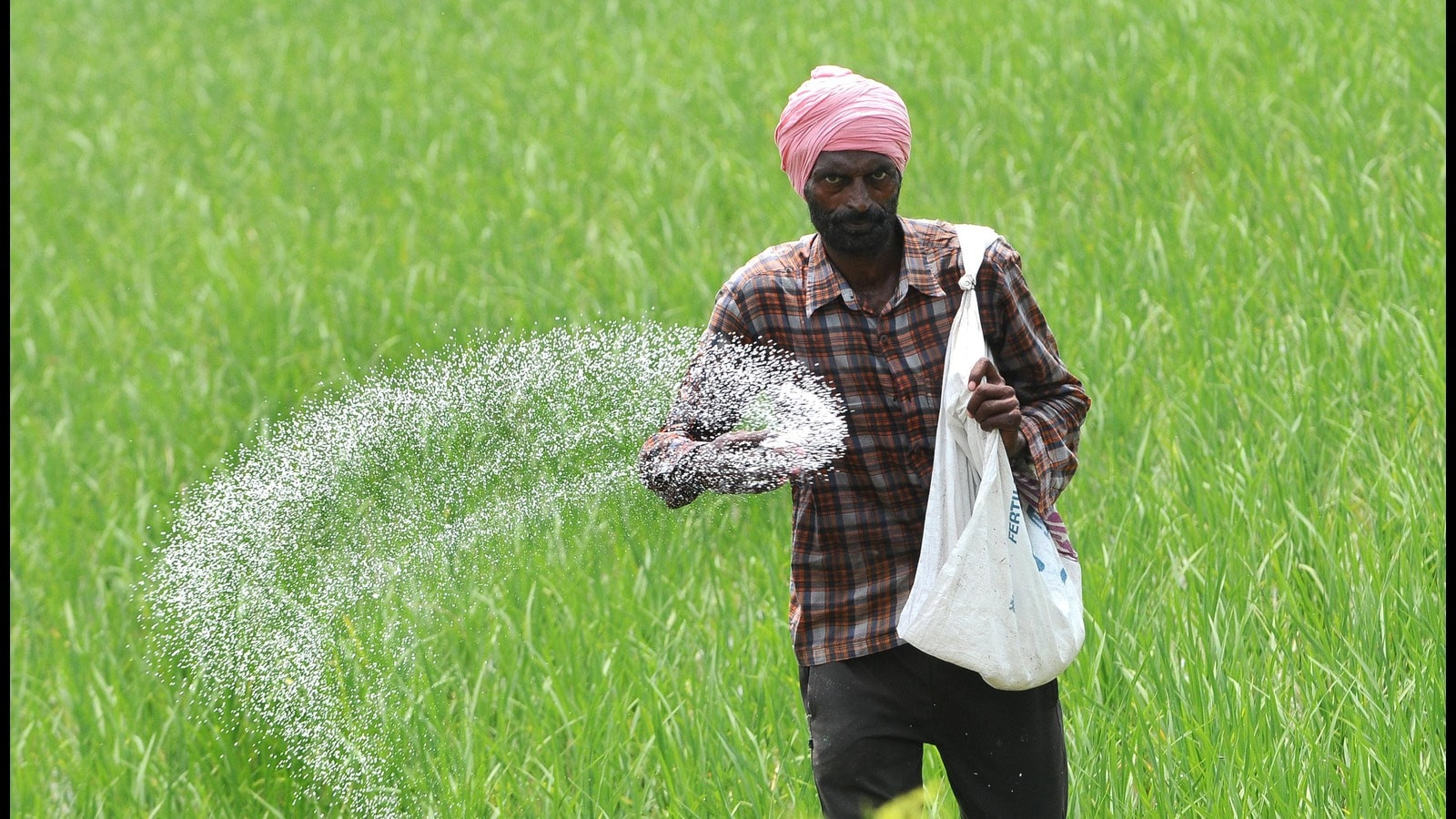Farmers in Northern Ireland are being reminded that the closed period for spreading chemical fertiliser is fast approaching, with the ban coming into effect on September 15, 2024.
The Department of Agriculture, Environment and Rural Affairs (DAERA) has issued a stark warning to farmers, urging them to take immediate action to ensure they are compliant with the regulations. The closed spreading period for all types of chemical fertiliser will run from midnight on September 15, 2024, to midnight January 31, 2025.
The Nutrients Action Programme (NAP) prohibits the application of fertilisers during the months when plant growth is lowest and the risk of nutrient runoff is highest. DAERA emphasizes that applying nutrients to grass or crops that are not growing can lead to valuable nutrients leaching or running off into waterways, ultimately harming water quality.
The department acknowledges that there are two exceptions to the closed spreading period for chemical fertiliser. First, different types of chemical fertiliser can be applied to some crops other than grass during the closed period, if a crop need can be demonstrated. DAERA cites the example of winter cabbages which may require a nitrogen (N) top dressing and, on soils at phosphorus (P) or K Index 0 and 1, cereal crops may require phosphate and/or potash at sowing. Second, an autumn grass re-seed or winter sown cereal does not require nitrogen fertiliser at sowing.
While farmers are not required to notify the Northern Ireland Environment Agency (NIEA) about chemical fertiliser applications made due to demonstrable crop need, DAERA strongly advises farmers to keep a note for their records of the type and amount of fertiliser applied and the reasoning for it, in case of inspection. There is also no closed period for application of chemical potash fertiliser to grassland, provided it is not blended with nitrogen or phosphorus fertiliser.
DAERA’s reminder comes amid growing concerns about water quality in Northern Ireland. In 2000, water quality targets were set for Northern Ireland to achieve ‘good’ status for rivers and lakes by 2027. However, since 2015, DAERA has introduced enhanced monitoring requirements, such as the inclusion of new ‘priority substances.’ Unfortunately, due to this enhanced monitoring, no lakes or rivers in Northern Ireland currently have ‘good’ status.
DAERA acknowledges the responsibility of all sectors in addressing water quality issues. However, they specifically note that agriculture could do better and that a focus is needed to show greater improvements over the next few years otherwise further restrictions could be imposed. A key focus, according to DAERA, will be the amount of phosphorus used on farms in animal feed and fertiliser.
The department encourages farmers to engage in nutrient management planning to ensure the sustainable use of manures and fertilisers. Training in nutrient management is available as part of the provision for the Soil Nutrient Health Scheme through the College of Agriculture, Food and Rural Enterprise (CAFRE).
What Farmers Should Know About the Chemical Fertiliser Ban
The closed period for spreading chemical fertiliser in Northern Ireland is from midnight on September 15, 2024 to midnight January 31, 2025. This ban is implemented to protect water quality and prevent nutrient runoff during the months when plant growth is minimal and the risk of nutrient leaching is high.
Exceptions to the Ban
There are two exceptions to the closed spreading period:
- Demonstrable Crop Need: Some crops, such as winter cabbages, may require a nitrogen top dressing during the closed period. Similarly, certain cereal crops may require phosphate and/or potash at sowing on soils with a low phosphorous or potassium index.
- Autumn Grass Reseeding and Winter-Sown Cereals: Autumn grass re-seeding and winter-sown cereals do not require nitrogen fertiliser at sowing.
Keeping Records
Although there is no requirement to notify the Northern Ireland Environment Agency (NIEA) about fertiliser applications made due to demonstrable crop need, DAERA recommends that farmers keep detailed records of the type and amount of fertiliser applied, along with the reasoning for it. This documentation can be helpful in case of inspections.
Potash Exception
There is no closed period for applying chemical potash fertiliser to grassland, as long as it is not blended with nitrogen or phosphorus fertiliser.
The Importance of Sustainable Practices
DAERA emphasizes the crucial role of sustainable nutrient management practices in protecting water quality. Farmers are encouraged to actively participate in nutrient management planning and to seek out training opportunities to improve their knowledge and skills in this area. The Soil Nutrient Health Scheme, offered through the College of Agriculture, Food and Rural Enterprise (CAFRE), provides valuable training resources for farmers. By embracing sustainable practices, farmers can contribute to safeguarding the environment while ensuring the long-term viability of their operations.
Protecting the Environment, Protecting the Future
The closed spreading period for chemical fertiliser is an important step towards achieving sustainable agricultural practices in Northern Ireland. Farmers are urged to familiarize themselves with the regulations and to take proactive measures to ensure compliance. By working together, farmers and policymakers can effectively protect water quality, safeguard the environment, and secure a sustainable future for agriculture in Northern Ireland.


















